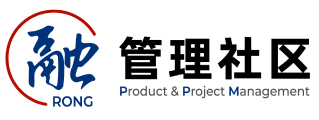软件测试需要掌握的技能以及软件工具
 249 2024-09-18
249 2024-09-18
我们非常重视原创文章,为尊重知识产权并避免潜在的版权问题,我们在此提供文章的摘要供您初步了解。如果您想要查阅更为详尽的内容,访问作者的公众号页面获取完整文章。
Software Testing Skills Summary
1. Testing Principles and Methods
Software testing evaluates software quality by executing programs to verify if they meet expected results. It involves understanding test strategies, plans, case designs, and different methods such as black-box, white-box, and gray-box testing. The ability to write effective test cases and comprehend testing plans is crucial.
2. Programming Languages
Knowledge of at least one programming language like Java, Python, or C# is essential for writing automation scripts. Familiarity with basic programming concepts, data structures, and algorithms is also required.
3. Operating Systems and Networking Basics
Software testing requires interaction with various operating systems and network environments. Test engineers should be well-versed in operating systems and foundational network knowledge, including Linux, Windows, TCP/IP, and HTTP protocols.
4. Database Fundamentals
Understanding of databases is necessary, including SQL, relational and non-relational databases. Testers should be capable of writing SQL queries, comprehending table relationships, and using databases for data-driven testing.
5. Software Development Life Cycle
The software development life cycle (SDLC) is integral to software testing. Test engineers need to understand the SDLC stages such as analysis, design, development, testing, and maintenance to support and facilitate testing.
6. Communication Skills
Good communication skills are essential for test engineers to interact with developers, product managers, and team members, ensuring clear information transfer and conflict resolution.
7. Analytical and Problem-Solving Skills
Test engineers should be adept at analyzing issues, identifying defects, adapting to changes, and optimizing testing processes for improved efficiency and quality.
Tools for Software Testing Engineers
- Testing Tools: Tools like Selenium, Appium, and JMeter help automate and reduce manual testing efforts.
- Editors/IDEs: Tools like Eclipse, IntelliJ IDEA, and Visual Studio Code are used for coding.
- Version Control: Tools such as Git and SVN manage codebases and facilitate collaboration.
- Defect Tracking: Tools like JIRA, Bugzilla, and ZenTao track and manage defects.
- Integrated Development Environments (IDEs): Tools like Android Studio and Xcode assist in building and debugging applications.
- Test Management Tools: Tools like TestRail and Quality Center manage test processes and documentation.
In conclusion, software testing engineers require a set of fundamental skills and tools, and they must continuously learn and improve to keep up with market demands and technological advancements.
想要了解更多内容?


白皮书上线








